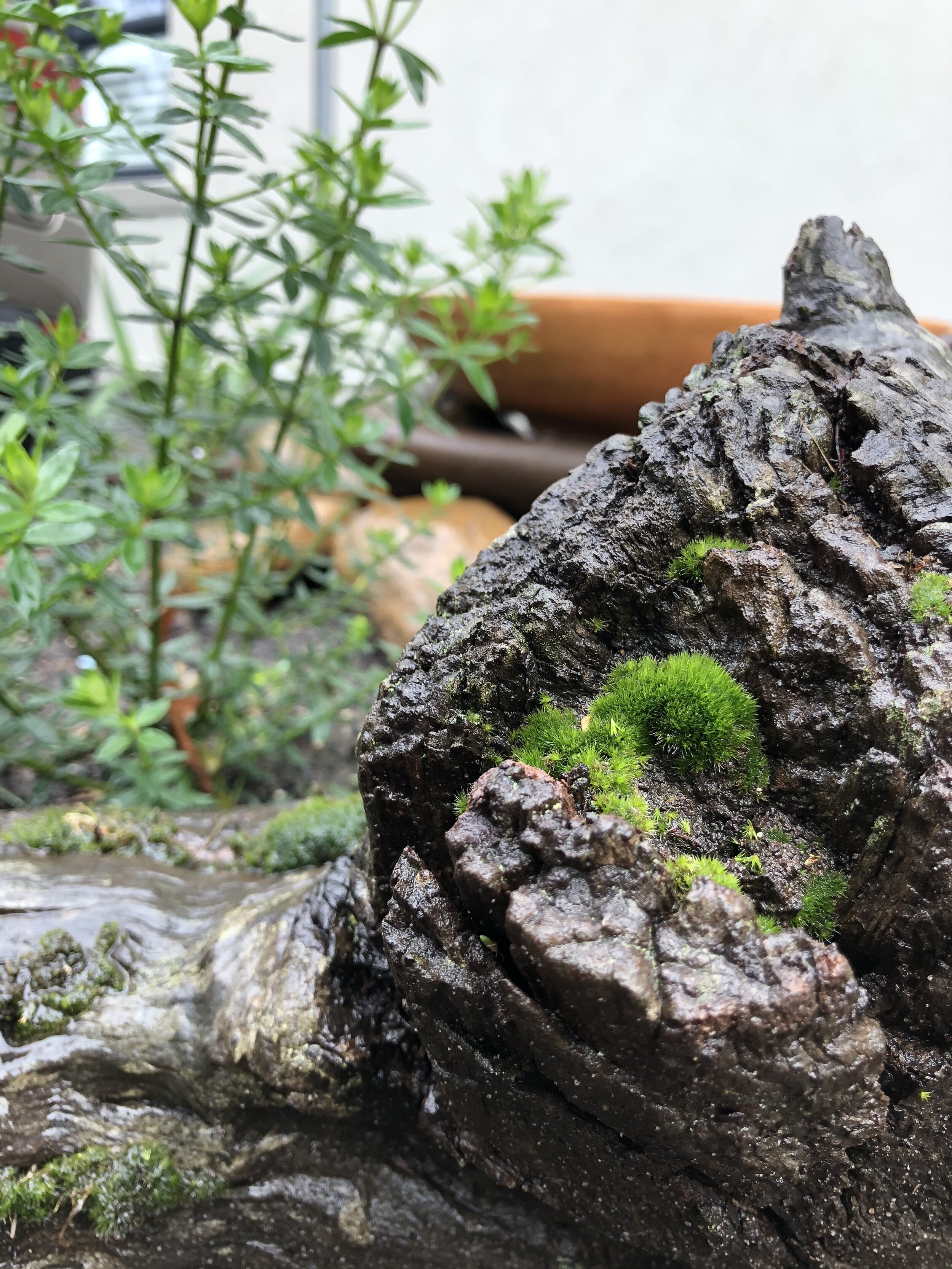Welcome!
The South Melbourne BEE Gardens are a collection of 9 gardens on the corner of Moray and Cobden Streets in South Melbourne. They aim to demonstrate what can be done in undernourished public spaces to create a joyful, happy, human community and a thriving, wriggling, buzzing ecological community - bringing both worlds together in a positive way! The BEE Gardens are a part of the pilot program that has helped to start the Melbourne Pollinator Corridor.
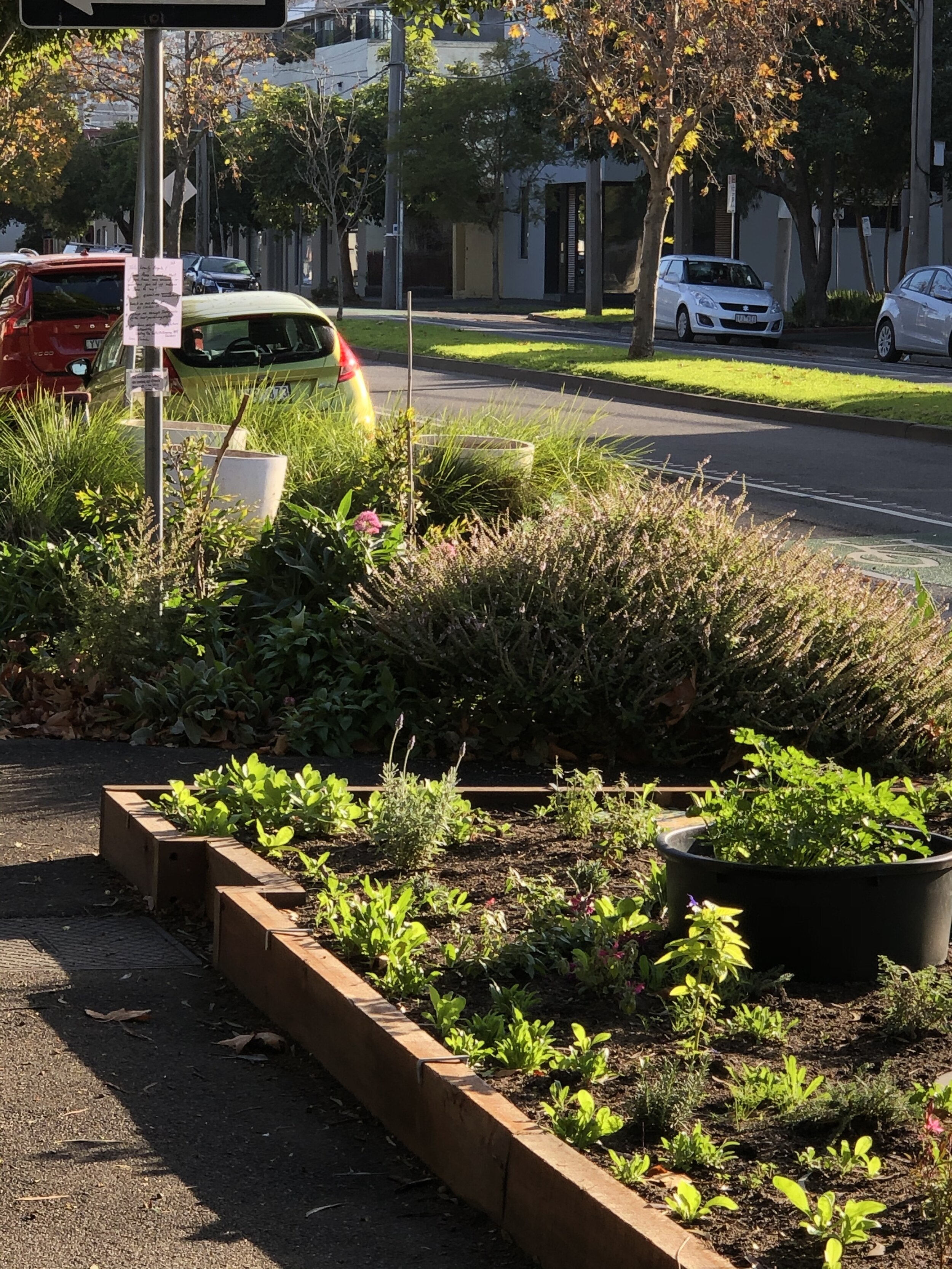
“The Bee Gardens have brought people together at a time when we need it most”… Zoe, local
Why a BEE Garden?
The world needs bees. Humans need bees. It’s as simple as that.
In the words of Maria Spivak…
“Bees are the most important pollinators of our fruits and vegetables and crops like alfalfa hay which feeds our farm animals.”
Around the world honey bees and native bees (of which there are about 20,000 species) are being wiped out. Urbanisation, the use of ‘cides and monoculture farming and gardening are creating disease and habitat loss and, as our demands for bee-pollinated food go up, our bee populations plummet.
Even though I had been creating street gardens for bee forage for years, the Australian bushfires in early 2020 really spurred me on to do something more NOW to help the environment. The fires killed over a million honey bees and there is no number for how many feral bees, native bees and other pollinators were wiped out.
The dream began to take shape- I wanted to create gardens on under-nourished and under-maintained land and show that they could be created to help nature and humans alike. I wanted to show that we, as humans, can share urban spaces happily as a species on this planet with others that, though smaller, are just as important.
I looked all around the world for bee initiatives and found some awesome ones, for example…
…but in Australia these types of initiatives were nowhere to be found.
When I spoke to native bee researcher Kit Prendergast and she told me that to her knowledge I was creating the first public gardens dedicated to honey bees and native bees I was both saddened and excited. And even more determined.
The more I looked into native bees the more I was captivated by them. I now take native bee lessons with Kit. There are about 2000 species in Australia and not much research has been done on them. That they are incredibly important to our wonderful ecosystem is of course understood. However, even in the studies that have been done so far, it has been demonstrated that some native bees species are actually better at pollinating certain crops (like tomatoes) than honey bees.
So. Why a BEE Garden? Because it has to happen. It is a no-brainer. We HAVE to turn our pollinator dead zones into places that bees and other pollinators can feed and live out their lives- all the while helping us.
Robin Wall Kimmerer talks about the idea that we have taken and taken gifts from earth who has always given generously and graciously. But now finally earth is asking that we give back OUR gifts in order for our relationship to continue. I think that one way earth is asking us to give back is through making us see that bees are in trouble.
She also says…
“To love a place is not enough. We must find ways to heal it.”
Every day, I am trying with all the determination I can muster to give back to earth. I love this area of South Melbourne and I know that I can do something to make it better for humans and nature- and therefore the earth. I aim to say thank you for what I take from earth every day- and I am doing this through helping bees and other wildlife at The South Melbourne BEE Gardens….and The Heart Gardening Project.
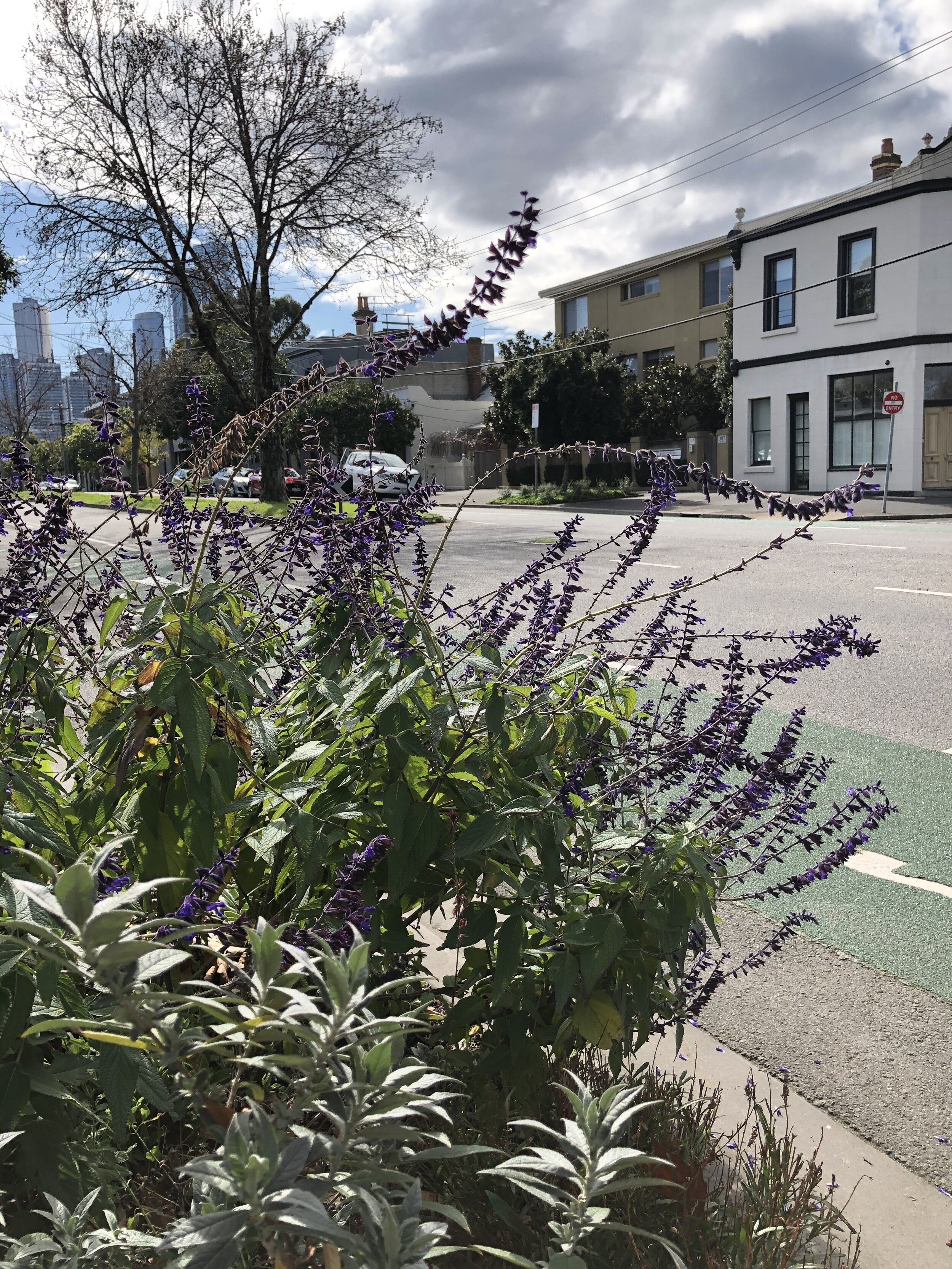
“My kids have spent hours admiring the creative gardens, watching seeds sprout, insects buzz and flowers bloom”…Bec, local
About The BEE Gardens...
Emma and the wonderful community of South Melbourne have been working on The South Melbourne BEE Gardens since November 2019. There are many reasons these gardens have come about (see below for more on that) but the bushfires at the beginning of 2020 really gave Emma the kick up the butt to do something (now!) to help the environment in the heart of the city of Melbourne.
The South Melbourne BEE Gardens are Australia’s first public gardens dedicated to the sustenance of honey bees and native bees and habitat for native bees. BEE stands for Bees, Education and Environment.
Bees- As well as looking beautiful, the plants (and their positions) have been chosen based on science, studies and experts’ opinions to attract not only bees but all the other amazing critters that come along with them like other pollinators, insects, microbats, birds and lizards.
Education- The BEE Gardens educate through positivity, beauty, accessibility and joy---the best ways to teach and create awareness. The Gardens further engage big and small people through clear and informative signage.
Environment- The BEE Gardens are turning land that was previously a dead pollinator zone into something that thrives, buzzes, wriggles and flourishes. They provide a safe place for humans and nature to co-exist. They show what can be done to help climate change and nature in a very urban setting. They are bringing people together, creating a REAL sense of community uplifting people’s spirits and making people smile.
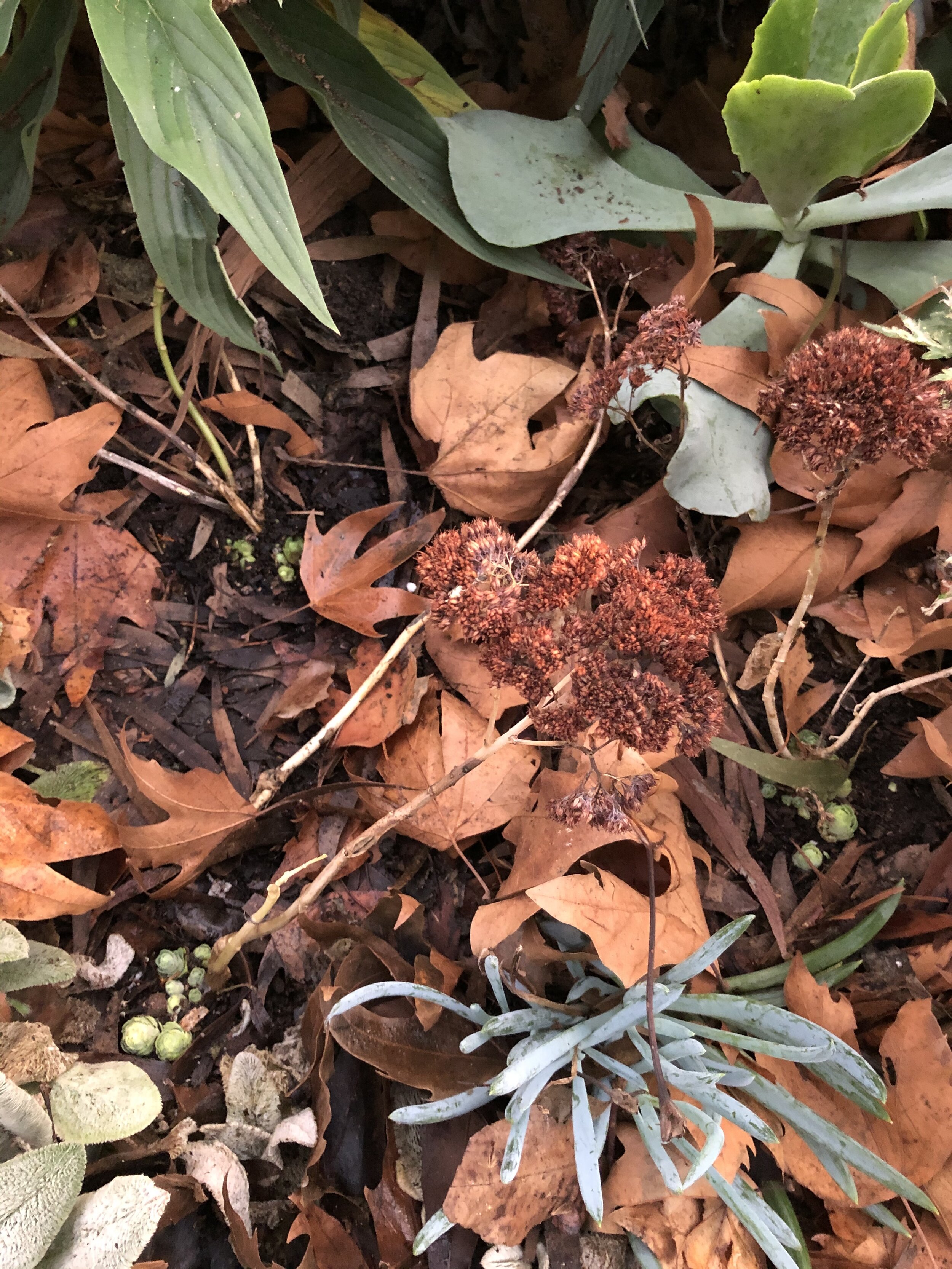
“We cannot describe the joy and community we feel watching “our” gardens grow.”…Kath and Brendan, locals.
Some Stats...
9 gardens created, 400 plants in the soil, 1000s of seeds sowed, 100 species and cultivars chosen, 70+ households directly involved, over $4800 raised……
The huge wave of positivity created by The BEE Gardens has included cards being dropped into our mailbox, messages written on signs, lemons, books, pots, plants and cash being given to me on the street, many wonderful landscaping materials and $ being donated and much time and energy being invested. It has been incredible!
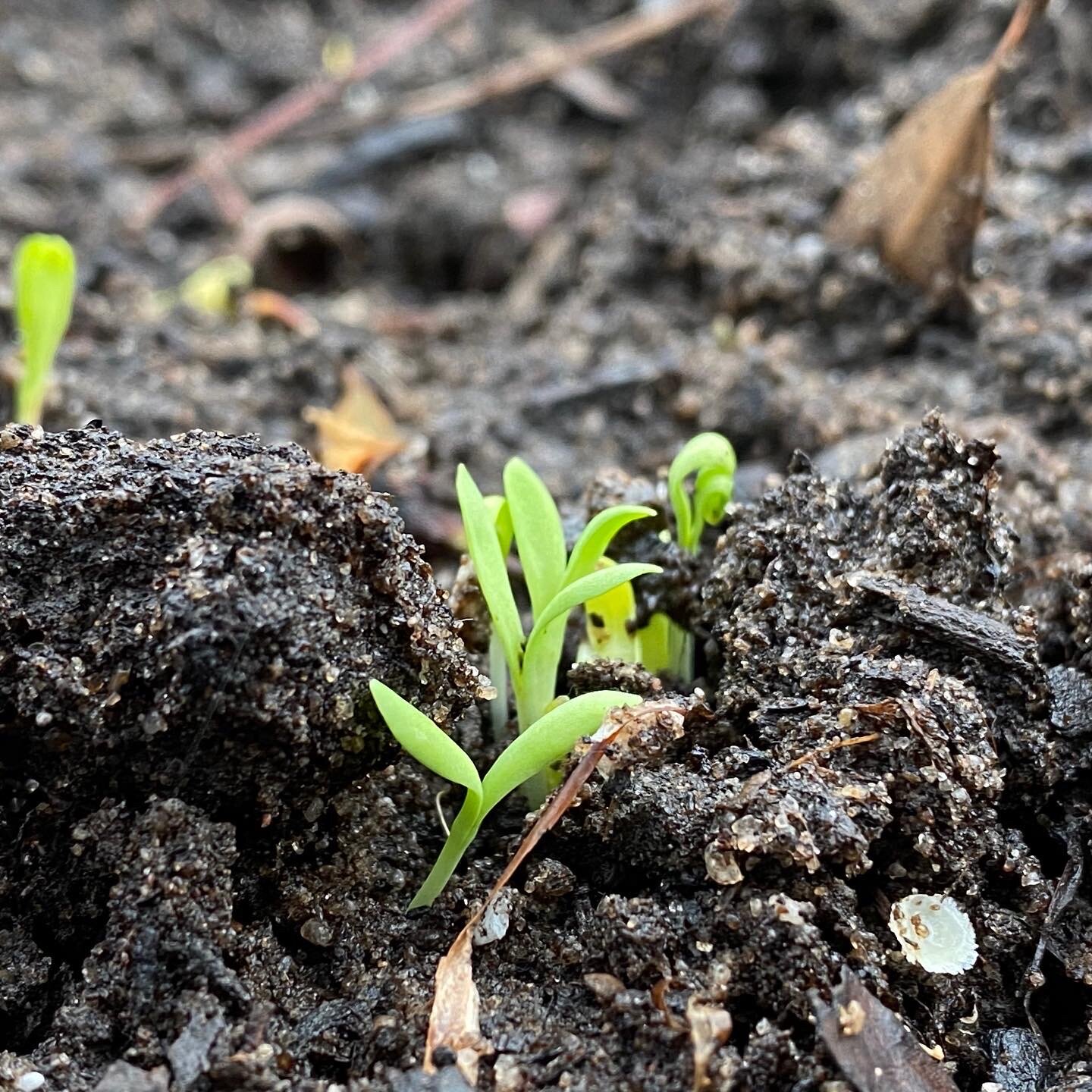
“The BEE Gardens have brought a love of flowers and plants into our home where it wasn’t previously”- Cam, local
